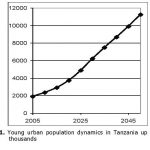Noam Chomsky: Trump Has Revealed The Extreme Fragility Of American Democracy
No Comments yetEven after Trump-appointed bureaucrat Emily W. Murphy of the General Services Administration signed a letter enabling Biden to start working with federal agencies and prepare for a transition of power, Donald Trump has personally continued to resist conceding, thus breaking the tradition of a peaceful transition to power.
What is he after with his bogus legal challenges of a “rigged and stolen” election? Can he really hope for a legislative coup? Is the contemporary United States a country divided not merely on political and ideological issues among its body politic, but, more frighteningly, along different conceptions of reality? And will Trumpism continue after Trump has left office? Revered public intellectual Noam Chomsky sheds light on these questions with groundbreaking insights in this exclusive interview for Truthout.
C.J. Polychroniou: U.S. election officials have declared the 2020 election “the most secure in American history.” Yet, the Trump campaign continues to mount legal challenges to the electoral process, pushing outrageous falsehoods, while Rudy Giuliani has gone so far as to make outlandish claims of a vast global conspiracy to steal the election from the Great Leader. In your view, what is really behind Trump’s legal challenges?
Noam Chomsky: Speculation of course, but I’ll indulge in a bad dream — which could become reality if we are not on guard, and if we fail to recognize that elections should be a brief interlude in a life of engaged activism, not a time to go home and leave matters in the hands of the victors.
I suspect that Trump and associates regard their legal challenges as a success in what seems a plausible strategy: keep the pot boiling and keep the loyal base at fever pitch, furious about the “stolen” election and the efforts of the insidious elites and the “deep state” to remove their savior from office.
That strategy seems to be working well. According to recent polls, “Three-quarters (77%) of Trump backers say Biden’s win was due to fraud” and “The anger among Trump’s base is tied to a belief that the election was stolen.” Rejection of the legal challenges with ridicule may please liberal circles, but for the base, it may be simply more proof of the Trump thesis: the hated elites will stop at nothing in their machinations.
Meanwhile, this strategy requires keeping the wrecking ball — Trump’s symbol — actively at work. Do nothing to deal with the pandemic, even delay in providing data to Biden’s team while a top nurse’s union warns of “catastrophic death” in the growing chaos while “our hospitals are knowingly still not prepared” and the government is on vacation.
Viewed through the lens of this vile strategy, if the pandemic gets worse, so much the better. Then local officials will try to impose restrictions and even lockdowns to control patriotic Americans — in line with the plans of the supposed “Communist-run deep state” — leading to economic harm and intrusions on normal life. Meanwhile, Trump and his associates could abandon other normal governmental activities so that when Biden establishes what they describe as a “fake government” on inauguration day, the immediate problems will be severe and failure likely.
On that day, which will live in infamy among the faithful, Trump might set up what he claims is an authentic government in Mar-a-Lago, with Mitch McConnell’s Senate in his pocket and a furious popular base. The next step would be to make the country ungovernable, a specialty that McConnell has been perfecting for a decade and that an accomplished demagogue like Trump can manage reflexively. Everything that goes wrong can be blamed on the treacherous “elites.”
Trump and associates might, as some have speculated, set up an alternative media empire, incorporating talk radio and other far right outlets but perhaps not Fox, which has shown occasional signs of disobedience. Then they could come roaring back into power in 2022-2024, feeding on growing discontent.
They would then be free to destroy the environment with abandon and maximize short-term profit for their primary constituency, impose discipline on what remains of government, tame the media, institute harsh authoritarian measures elsewhere, and continue with their abject service to their masters — the real elites, the very rich and the corporate sector, the decision-makers, as recent academic research once again establishes very clearly.
It’s of no little interest that we have to turn to the world’s leading business journal, the very respectable London Financial Times, to read some elementary truths about what could once claim to be a leading democracy: “Anyone with a pulse,” Financial Times Associate Editor Rana Foroohar writes, “knows that in the US today the system is rigged in favour of the wealthy and powerful.” Foroohar adds:
One particularly illuminating paper [just cited] found that considering the opinions of anyone outside that top 10 per cent was a far less accurate predictor of what happened to government policy. The numbers showed that: ‘not only do ordinary citizens not have uniquely substantial power over policy decisions; they have little or no independent influence on policy at all’. We have had decades of legislative tweaks to everything from tax policy to corporate governance and accounting standards that have favoured capital over labour. Supreme Court decisions such as the Citizens United case have also dramatically increased the amount of money funneled into political campaigning. This has left the nature of America’s political economy perilously close to an oligopoly.
If the Trump strategy is anything like the speculation outlined above, the prevailing oligopoly might look like a fond memory.
Anger and contempt for “elites” is not a mistake, even if the real elites are effectively concealed by the propaganda machine.
The masters do not much like Trump. His vulgar antics undermine their preferred image as humane and benign figures who labor tirelessly for the common good, directing “soulful corporations,” trustworthy guardians in whose hands our future is safe. But they may find it hard to fault someone whose major legislative achievement is a tax scam designed to enrich the very rich while imposing a heavier tax burden on the undeserving (and unwitting) majority.
Trump’s hopes for denying a Biden election win lie with a legislative revolt — that is, by overturning the certification process. Experts indicate that such an outcome has a very slim chance of taking place, yet the fact that it is even considered as a possibility surely reveals something utterly problematic about the way democracy functions in the United States. Can you share your views with us on this matter, and discuss what it would take to make the democratic process in the U.S. actually democratic?
Whatever the validity of my speculation about the goals and success of the Trump strategy, the whole election reveals the extreme fragility of American democracy. It is amazing enough that someone whose malevolent decision to provoke an out-of-control pandemic has just killed tens of thousands of Americans can even run for office, even carry much of the country with him, and that the political party that virtually shines his shoes can win a resounding victory at every level apart from the White House. That’s putting aside Trump’s major “achievements”: driving to near-term environmental catastrophe and sharply increasing the threat of terminal war, crimes that scarcely registered in the electoral process.
Trump’s rejection of the election results is just the coda to his quite impressive campaign to accomplish an authoritarian takeover, with the executive purged while his close associate Mitch McConnell converts the Senate into a joke, functioning almost entirely to enrich the rich and stack the judiciary with young, far right justices whose task will be to impose the ultra-reactionary Trump-McConnell agenda for a generation.
But that is only the icing on the cake. Foroohar of the Financial Times, whom I quoted earlier, is quite right that the malaise cuts far deeper. It traces back as far as the constitutional order, which was established on the principle that “those who own the country ought to govern it” (first Chief Justice John Jay) and that a prime duty of government is to “protect the minority of the opulent against the majority” (leading framer James Madison).
Hard struggles ensued to overturn the “Framers’ Coup” against democracy — the title of the gold standard of scholarship on the framing of the Constitution, by Michael Klarman. There have been periods of progress and of regression. We have just endured 40 years of regression, the neoliberal regime, a bitter assault against democracy and on the kind of society that can sustain it. An estimate of the monetary cost to the general population was recently given by the Rand Corporation: $47 trillion transferred from the working and middle classes (90 percent of the population) to the super-rich; the top 0.1 percent doubled their share of wealth to 20 percent of the total since Ronald Reagan.
The Rand figures are a considerable underestimate. Tens of trillions more were “transferred” after Reagan opened the spigots for tax havens, shell companies and other devices to rob the public. More were developed under Clinton’s deregulatory mania. Reagan and his partner Margaret Thatcher moved at once to undermine the labor movement, setting in motion the campaigns to deprive working people of the primary means to resist the assault. The serious decline of functioning democracy is a virtual corollary of the radical concentration of wealth and dispatch of much of the general population to stagnation and precarity.
There is no need to review the rest of the sordid story once again. But it is important to remember the deep roots of the undemocratic structure of the government. In the 18th century, despite the Framer’s Coup, the U.S. Constitution was an important step toward democracy, so much so that the great statesmen of Europe invoked the venerable domino theory. They feared that “the pernicious doctrines of republicanism and popular self-rule” spread by “the apostles of sedition” who had freed themselves from Britain’s grip might encourage similar “vicious principles” beyond.
That was then. A lot has happened in 250 years. If the U.S. were to apply for membership in the European Union today, it would probably be rejected. The radically undemocratic character of the Senate would be sufficient reason. There is surely something a little odd about the respected doctrine of “originalism,” holding that we should be bound by the ideas of a group of wealthy white slaveowners 250 years ago, even putting aside the cynical ways “originalist” and “textualist” doctrines are often applied in practice.
Even without Trump, the United States would still be facing a severe constitutional crisis. But that is only a fraction of the problem. Democracy is at best a fragile reed when people spend most of their waking lives under the rule of a master with virtually absolute power. That was understood very well by working people in the early days of the industrial revolution, who struggled hard against this attack on their fundamental rights and personal dignity. They also expressed their concern that a day might come when wage slaves “will so far forget what is due to manhood as to glory in a system forced on them by their necessity and in opposition to their feelings of independence and self-respect,” a day they hoped would be “far distant.”
Thoughts worth contemplating.
Millions of Trump’s supporters seem to believe that their leader actually won the election. In fact, there have even been signs claiming, “World Knows Trump Won.” In light of this, it seems to me that the contemporary United States is not simply a divided and polarized nation on political and ideological issues alone, but that we also have alternative epistemologies in operation: one segment of the population believes in actual facts and relies on science for an explanation of the world, while another segment of the citizenry is under the spell of falsehoods, disinformation and deception. How do you explain this peculiar phenomenon, especially since we are talking about a very rich and technologically advanced country?
A little caution is needed here.
This is the country of the Scopes trial. When I was a student at an Ivy League college, lectures on the theory of evolution were introduced with the professor’s warning that you don’t have to believe this but it’s important to know what some people think. Today, “Both Protestants and Catholics are considerably more likely to say evolution was guided or allowed by God than they are to say that humans evolved due to processes such as natural selection, or to say that humans have always existed in their present form.” Over 40 percent of Americans expect the Second Coming by mid-century, while over 80 percent of the population believe in miracles.
In some ways, we’re not that far from centuries ago.
It’s also important to consider the devastating impact of the neoliberal regime on much of the country, with particular severity in rural areas that were also major centers of manufacturing. After steady growth for many years, employment in manufacturing declined from its 1979 peak of almost 20 million to under 13 million 40 years later. The decline was in large part the result of policy choices: bipartisan investor rights agreements, mislabeled “free trade agreements,” which provided unparalleled protection and other rights to corporate power while setting working people in competition with the most poorly paid and repressed workers in the world. That has been a large factor in the devastation of rural America: towns depopulated or abandoned, no jobs or hospitals or other services, general malaise and a justified sense of having been abandoned. That’s hardly conducive to participation in the most advanced sectors of global culture.
The sources of the divide you mention are complex. The split, however, is very real. And it has major impacts. Right now, the country is in the grip of a severe pandemic. It was understood by scientists in 2003, after containment of the SARS epidemic, that another coronavirus was likely. The cultural divide soon emerged. When Obama took office in 2009, one of his first acts was to convene the president’s scientific advisory council to request them to provide a pandemic response plan. They did. It was implemented, and remained in force until January 2017, when one of Trump’s first acts was to dismantle it, opening the most anti-science administration in modern history, with consequences that we have seen on many fronts — and with effects on popular culture.
The conflict of epistemologies is real. It is no simple matter to explain or to deal with it. The future will depend substantially on how the conflict is resolved.
One way or another, Trump will leave office soon. But the question that still lingers in the air is whether Trumpism will also be gone. In your view, is there Trumpism without Trump?
Returning to my original speculation, I think both Trump and Trumpism will remain with us for a long time, both the individual himself and the poisonous currents he has unleashed. These poisons may be virulent enough to bring civilization to a horrifying end. There are workable solutions to the crises that humans face in this uniquely dangerous moment of human history. What happens within the most powerful country in human history cannot fail to have an overwhelming impact on what eventuates — an impact even on survival of human society in any recognizable form.
This interview has been lightly edited for clarity.
C.J. Polychroniou is a political economist/political scientist who has taught and worked in universities and research centers in Europe and the United States. His main research interests are in European economic integration, globalization, the political economy of the United States and the deconstruction of neoliberalism’s politico-economic project. He is a regular contributor to Truthout as well as a member of Truthout’s Public Intellectual Project. He has published several books and his articles have appeared in a variety of journals, magazines, newspapers and popular news websites. Many of his publications have been translated into several foreign languages, including Croatian, French, Greek, Italian, Portuguese, Spanish and Turkish. He is the author of Optimism Over Despair: Noam Chomsky On Capitalism, Empire, and Social Change, an anthology of interviews with Chomsky originally published at Truthoutand collected by Haymarket Books.
You May Also Like
Comments
Leave a Reply









